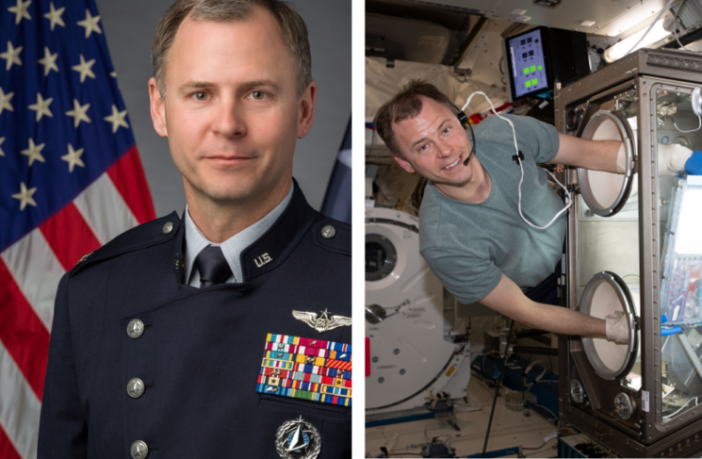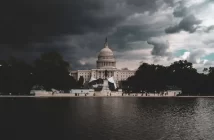/*! elementor – v3.21.0 – 08-05-2024 */
.elementor-widget-text-editor.elementor-drop-cap-view-stacked .elementor-drop-cap{background-color:#69727d;color:#fff}.elementor-widget-text-editor.elementor-drop-cap-view-framed .elementor-drop-cap{color:#69727d;border:3px solid;background-color:transparent}.elementor-widget-text-editor:not(.elementor-drop-cap-view-default) .elementor-drop-cap{margin-top:8px}.elementor-widget-text-editor:not(.elementor-drop-cap-view-default) .elementor-drop-cap-letter{width:1em;height:1em}.elementor-widget-text-editor .elementor-drop-cap{float:left;text-align:center;line-height:1;font-size:50px}.elementor-widget-text-editor .elementor-drop-cap-letter{display:inline-block}
In 2019, the U.S. military established the Space Force, a specialty branch of the Air Force dedicated to operations and protections in space. Less than five years after its conception, a Space Force Guardian is finally heading to the stars.
Space Force Col. Nick Hague will be the first Guardian to launch into space on a NASA mission to the International Space Station. Though his exact launch date is unknown, Hague will embark on the mission no sooner than August 1st of this year. Commander Zena Cardman, Mission Specialist Stephanie Wilson and Roscosmos cosmonaut Mission Specialist Aleksandr Gorbunov will join him. Hague will pilot the Space X Crew-9 mission aboard the Dragon spacecraft and work as a flight engineer once they have landed at the station. They will spend at least six months conducting numerous operations and research activities.
“The core of our mission on the space station is to perform science experiments and collect data,” Hague stated. “The International Space Station provides a unique platform in microgravity, which allows researchers from around the world to explore and discover processes that could have significant impact on the behavior of our bodies and the environment around us both on Earth and off planet.”
Though this is Hague’s first mission as a Guardian, this trip will mark his third launch to space and his second mission to the International Space Station. After becoming an astronaut in 2013, Hague was scheduled for his first space launch in 2018, where he experienced a rocket booster malfunction that led to an in-flight launch abort. He launched into space in March 2019 aboard the Soyuz MS-12 as a flight engineer on a 203-day mission at the International Space Station. He conducted three spacewalks and experiments in biology, biotechnology, physics and Earth science.
Hague graduated from the Air Force Academy in 1998 with a degree in astronautical engineering and later earned his M.S. in aeronautical and astronautical engineering from the Massachusetts Institute of Technology. After working for several years in spacecraft technologies at the Kirtland Air Force Base in New Mexico, Hague was deployed for five months in Iraq in support of Operation Iraqi Freedom, conducting experimental airborne reconnaissance. He then joined the Department of Astronautics staff at his alma mater in 2006 and worked as a staff member of the U.S. Senate in the Air Force Fellows Program a few short years later. Hague also worked on numerous research and developmental projects before joining NASA.
Upon returning from his mission in 2019, Hague took on a leadership rotation with the Space Force as the Director of Test and Evaluation and transitioned from the Air Force to the Space Force in 2021.
“Being a part of this mission is a unique honor, but it’s truly a collective effort,” Hague said. “Guardians worldwide ensure safe and secure operations of critical systems for launch and on station. From GPS satellites that underpin our station navigation systems to space domain awareness sites around the globe that help NASA prevent orbital debris from colliding with the space station, to the launch range that my crew will use when we liftoff, Guardians provide critical support without which our NASA human spaceflight program wouldn’t be possible.”
Discover more articles for the veteran community here.
The post Col. Nick Hague Will Be the First Guardian to Launch Into Space appeared first on DiversityComm.



